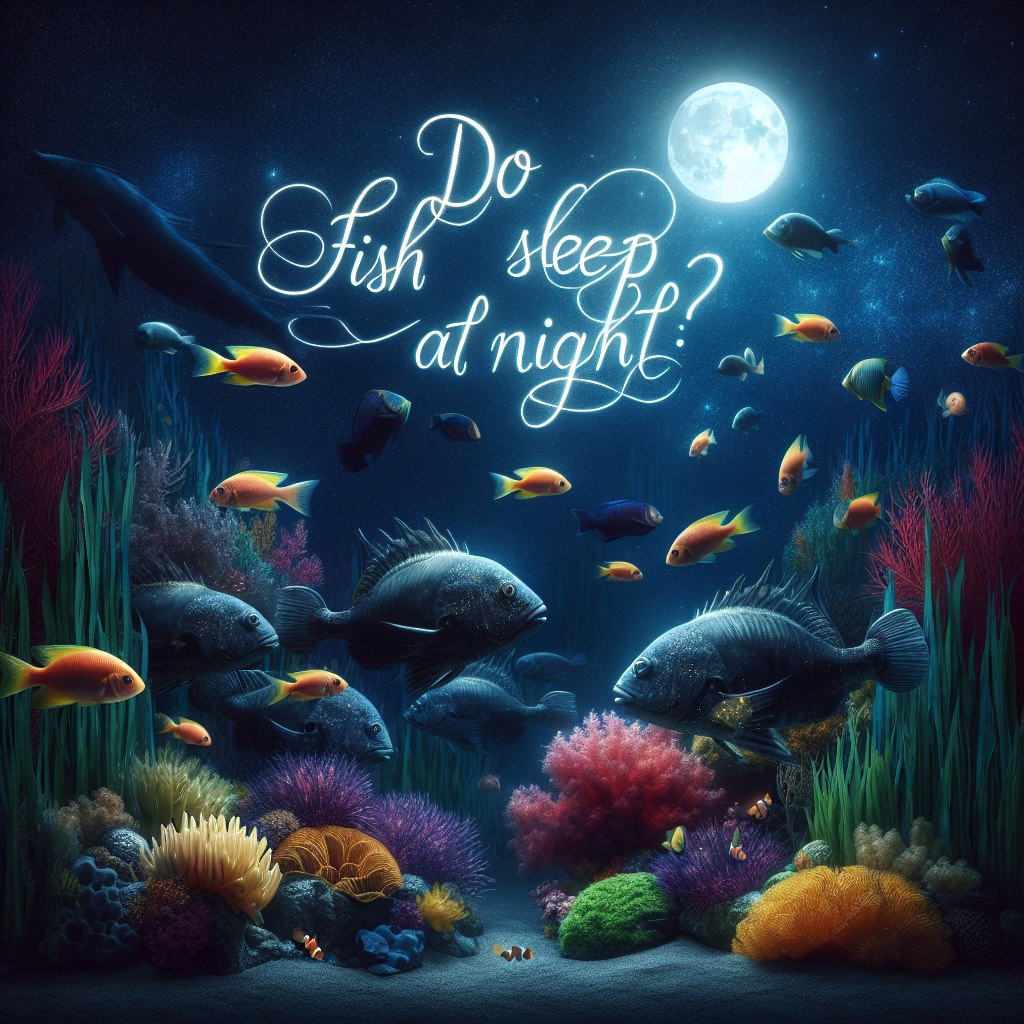Do Fish Sleep at Night? Understanding Fish Sleep Patterns
When we think of sleep, most of us envision cozy humans tucked under blankets or perhaps a dog curled up in a sunny spot. However, the concept of sleep in the animal kingdom is not quite so uniform, and it raises an intriguing question: do fish sleep at night?
Defining Sleep in Fish
To understand whether fish sleep, we first need to define what sleep means for them. In mammals, sleep is often characterized by inactivity, reduced responsiveness to external stimuli, and specific physiological changes, including altered brain wave activity. For fish, while they may not exhibit the same sleep signs, they do demonstrate periods of rest where their activity levels drop significantly.
Fish lack eyelids, which makes it difficult to discern when they are asleep. Instead, they have a protective membrane covering their eyes that remains closed during rest periods, obscuring any external signs of slumber. However, researchers have observed that fish enter a state of reduced activity and responsiveness, particularly during nighttime or when they feel safe.
Circadian Rhythms and Sleep Patterns
Fish are primarily diurnal or nocturnal, dependent on their species. Diurnal species, such as many reef fish, are active during the day and tend to rest at night. Nocturnal species, such as certain catfish or members of the anglerfish family, demonstrate activity during the night and rest during the day. Regardless of the species’ activity schedules, all fish exhibit circadian rhythms—internal processes that cycle roughly every 24 hours.
These rhythms affect not only when fish feed and mate but also when they enter their restful states. Many studies have indicated that this resting phase can include a notable decrease in activity and metabolism. Some fish even seek out sheltered areas or hide among plants or rocks to minimize exposure to predators while they rest.
Evidence of Sleep-Like States
Research has shown that various fish species exhibit behaviors consistent with sleep. For example, certain studies have documented that fish will hover in place or seek out protected areas, where they become less responsive to external stimuli. Scientists have noted that during these times of rest, fish demonstrate:
- Decreased Activity: Activity levels drop significantly as fish enter a state of relative quietness.
- Reduced Responsiveness: Fish become less reactive to their environment. For instance, a suddenly placed object may not elicit the same immediate escape response that a fully alert fish would display.
- Physiological Changes: Some studies have indicated changes in heart rate or metabolism during these rest phases, suggesting a need for recovery much like in other animals.
Environmental Influence
The sleep patterns of fish can also be influenced by environmental conditions. Factors such as lighting, water temperature, and the presence of predators or other stressors can alter when and how long fish rest. For instance, in brightly lit environments, fish may become more stressed and avoid resting periods or adapt to a less typical sleeping pattern.
Conclusion
So, do fish sleep at night? The answer largely depends on the specific species and its environmental context. While fish may not sleep in the same way mammals do, they certainly enter restful states characterized by reduced activity and responsiveness. Understanding these behaviors not only enriches our knowledge of aquatic life but also showcases the complex adaptations that all living creatures have made to survive in their respective environments. Fish, like all animals, have their way of embracing rest, even if it’s not always as apparent to us as it is with our furry friends at home.





